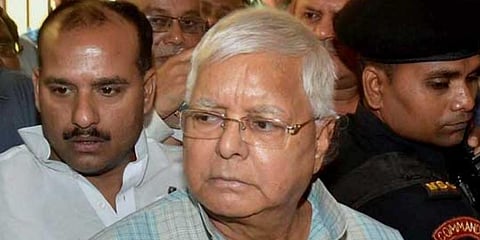

PATNA: A day before Bihar chief minister Nitish Kumar chairs an all-party meeting on the caste-based census in the state, Rashtriya Janata Dal (RJD) chief Lalu Prasad will address his party MLAs and MLCs on May 31 on the same issue.
Lalu will be addressing his party MLAs and MLCs after 11 months. The meeting will be held at the official residence of former chief minister Rabri Devi.
This time, the RJD chief will be meeting his party legislators in person. Earlier, Lalu had addressed his party leaders through a video conference from New Delhi during the silver jubilee celebrations of RJD on July 5 last year.
In the meeting, Lalu is expected to express his views on how the caste census format should be and would also elicit the opinions of his party legislators.
In the meeting, Lalu and Tejashwi will also review the ongoing membership drive of the party and also how to strengthen the party ahead of the 2024 Lok Sabha elections. The party has fixed the target of enrolling one crore new members by June 30.
Lalu considers that caste-based census is a strong political weapon to brighten its party`s prospects by consolidating OBC votes. In the past, he had also demanded release of cast data, which was not made public after the 2011 census.
RJD and Nitish`s JD (U) are on the same page on the issue of caste census even as BJP also agreed to participate in the all-party meeting after its initial inhibitions.
Earlier, an all-party delegation under the leadership of Nitish had met Prime Minister Narendra Modi on the caste-based census.
Tejashwi has also been a great supporter of the caste-based census, saying it should be conducted not only in Bihar but also in the entire nation. It will help the proper distribution of resources, he argues.
“If animals and trees can be counted, why not people and their castes. When the government has no scientific data on the population, how can it formulate welfare policies," he questioned.